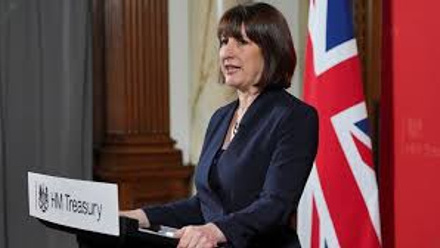Top takeaways from the Budget
Below you will find some quick takeaways from the Autumn Budget, and about how it may impact your building business. For more information read our reaction to the Budget.
1. National Insurance rises
National Insurance (NI) rises have not been imposed on the employee, but on the employer. This means employees won’t see changes to their pay packets, but employers will have to pay more. The threshold has been raised to 15% from 13.8% on salaries above £5,000. This may affect future decisions made by a company such as wage rises and employing new staff, as they are having to shoulder higher costs. However, Employment Allowance, which is aimed at smaller companies to help reduce their NI contributions has been raised from £5,000 to £10,500 – this may mean that companies with a small NI contribution may benefit or see little difference.
If you are an FMB member and need support navigating these changes please contact our Tax helpline.
2. Big changes for Double Cab Pickups
In the small print of the Budget there is a significant change. Double cab pickups (DCPU), with a payload of one tonne or more, from April next year will be treated as cars for tax purposes, this could lead a significant rise in costs for DCPUs leased or purchased after April next year. The Budget says: “From 1 April 2025 for Corporation Tax, and 6 April 2025 for income tax, DCPUs will be treated as cars for the purposes of capital allowances, benefits in kind, and some deductions from business profits.”
DCPUs purchased, leased or ordered before the April dates in 2025 will still benefit from the previous tax regime until April 5 2029.
As DCPUs tend to have high emissions (sometimes the highest rating) being treated a car will lead to a significant increase in tax. Depending on the vehicle this could lead to a tax bill rise of well over £10,000.
3. Wage rises
The legal minimum wage is rising, and this will impact a company’s outgoings. Over 21s will see a rise of £11.44 to £12.21 per hour and 18- to 20-year-olds will see a rise from £8.60 to £10. Apprentices under the age of 19, or those over 19 in their first year of training, will see an increase of 18% from £6.40 to £7.55.
4. No fuel tax increases
Given the importance of vans to the industry a rise in fuel duty could be deeply damaging to bottom lines. It had been speculated that the Government might increase the rate of fuel duty, but thankfully this didn’t happen. This means the prices at the pumps will not rise due to tax increases.
5. Capital Gains Tax
Capital Gains Tax from selling shares has increased to 18% from 10%. While this may not be immediately obvious as a problem, those looking to sell their companies when approaching retirement may be impacted, as you may receive less money when selling your business and assets.
6. Warm homes and loans for small house builders
We’re glad to see the Government has committed to upgrade the nation’s energy inefficient homes. They have pledged £3.4bn to fund their warm homes plans. While the plans for how this will impact owner occupiers is not yet clear, this should help to provide a pipeline of work for builders. The Government also announced low costs loans for SME house builders which is a positive step forward, but many issues still remain in this sector.



